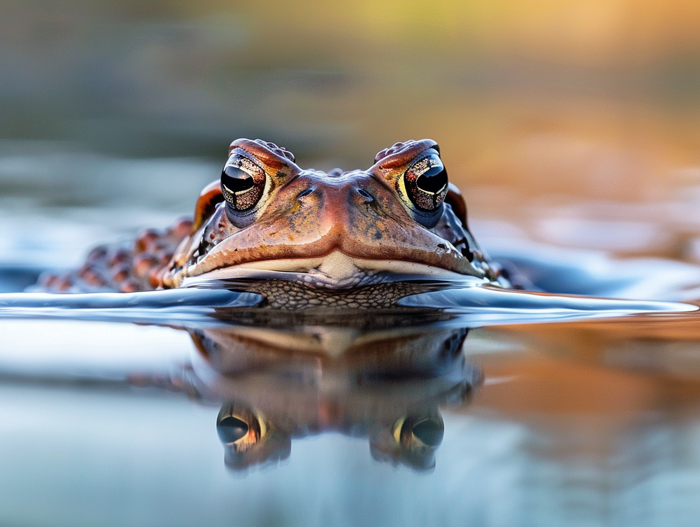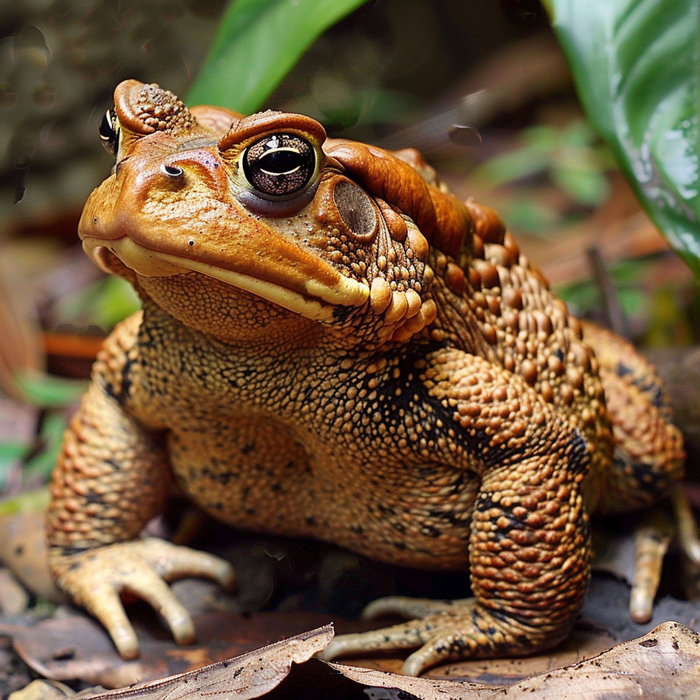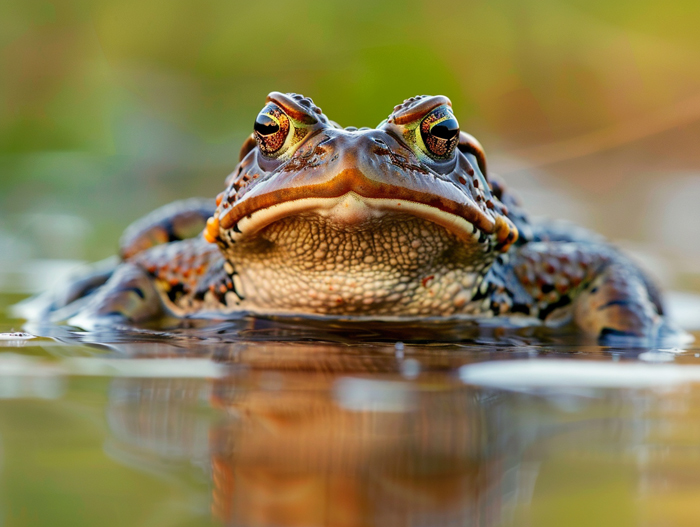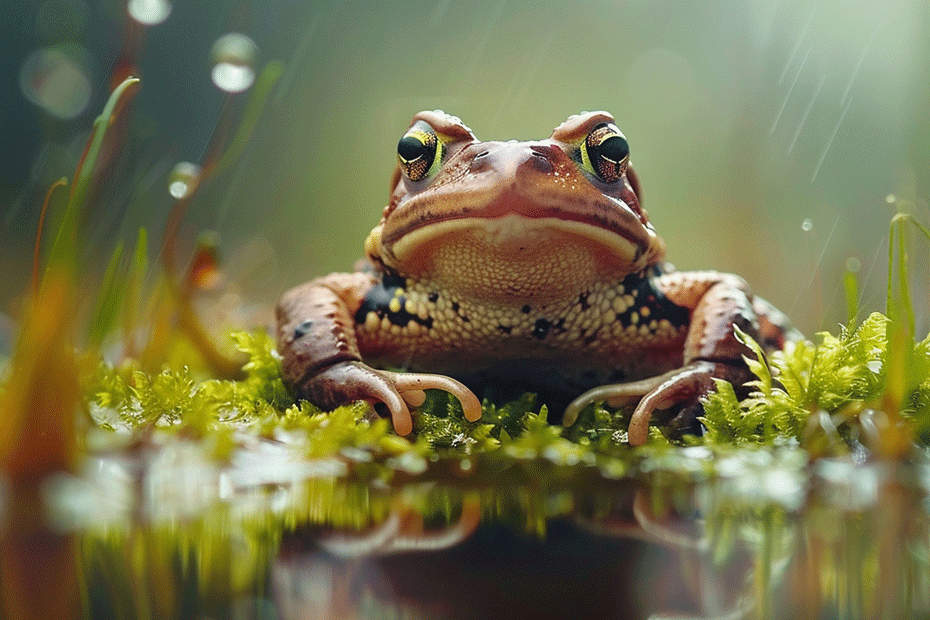Curious about whether toads enjoy water? You’re not alone! Toads are fascinating creatures with unique behaviors when it comes to water. Understanding their relationship with water can shed light on their habits and preferences. Let’s jump into the world of toads and explore their affinity for water.
Water plays a crucial role in the lives of toads, influencing their survival and behavior. From breeding to hydration, water is essential for various aspects of a toad’s life. Discovering how toads interact with water can provide valuable insights into their biology and ecology. Stay tuned to uncover the intriguing connection between toads and water.
Key Takeaways
- Water is essential for toads: From breeding and hydration to regulating body temperature, water plays a crucial role in the lives of toads.
- Toads absorb water through their skin: Toads stay hydrated by absorbing water through their permeable skin while sitting in moist areas or shallow ponds.
- Toad behavior around water: Toads engage in various activities near water, including mating, breeding, and hunting for insects, showcasing the importance of water in their daily activities.
- Water ensures toad survival: While not all toads may actively seek out water, its presence is vital for their survival and reproductive processes.
Exploring Toads and Water: Do Toads Like Water?
When it comes to toads, their relationship with water is crucial. But do toads actually like water? Let’s jump into this fascinating topic.

Key Terms
- Amphibians: Animals that live both on land and in water.
- Toads: A type of amphibian characterized by dry, warty skin and short hind legs for hopping.
- Hydration: The process of getting water into the body to prevent dehydration.
Reasons Toads Need Water
- Breeding: Water is essential for toads to lay eggs and for tadpoles to develop.
- Hydration: Toads absorb water through their skin to stay hydrated.
- Cooling: Water helps toads regulate their body temperature on hot days.
How Toads Interact with Water
- Hydration: Toads absorb water through their skin while sitting in humid areas or shallow ponds.
- Egg-laying: Female toads lay eggs in water, providing a safe environment for tadpoles to hatch.
- Hunting: Toads may hunt for insects near bodies of water due to the high insect activity in those areas.
Interesting Facts
- Some toad species can survive long periods of drought by burrowing underground.
- Toads have special adaptations to prevent excess water loss through their skin.
The Verdict
While not all toads may actively seek out water, it’s clear that water plays a vital role in their lives. The next time you see a toad near a pond or in a damp area, remember, water is likely playing a significant part in its daily activities.
Reasons toads are attracted to water

Natural Habitat of Toads
- Toads are amphibians that typically reside in moist environments.
- They are often found near ponds, streams, wetlands, and other water bodies.
- Such habitats provide toads with access to water for various needs.
- Hydration: Toads absorb water through their permeable skin to stay hydrated.
- Breeding: Water is essential for toads to lay their eggs and for the tadpoles to develop.
- Temperature Regulation: Toads rely on water bodies to regulate their body temperature.
- Hunting: Toads hunt for prey near water sources, making it a crucial aspect of their feeding habits.
Toads behavior around water
Toads have fascinating behavior around water, where they engage in various activities crucial to their survival and reproduction.

Toads Mating and Breeding in Water
- Mating Rituals: Toads often gather in water bodies for mating, with males vocalizing to attract females.
- Egg Laying: Females lay their eggs in water, where they hatch into tadpoles and undergo metamorphosis.
- Parental Care: Some toad species exhibit parental care, guarding their eggs and tadpoles in water.
- Hydration: Toads absorb water through their skin, essential for maintaining proper hydration levels.
- Soaking: They may soak in water to regulate body temperature and aid in shedding their skin.
- Hunting: Water bodies provide toads with hunting grounds for insects and other prey.
This behavior showcases how integral water is to the life cycle and daily activities of toads.
Conclusion
Toads’ affinity for water is not just a matter of preference; it’s a fundamental aspect of their survival and reproduction. From mating rituals to hydration and temperature regulation, water is essential to every aspect of a toad’s life. By understanding the significance of water in the daily activities and life cycle of toads, you gain insight into the intricate relationship between these amphibians and their aquatic environment. Remember, when observing toads near water, you’re witnessing a crucial part of their existence.

Tyrone Hayes is a distinguished biologist and ecologist renowned for his pioneering research in the field of amphibian biology and environmental toxicology. With over two decades of experience, he has illuminated the impacts of pesticides on amphibian development, revealing critical insights into broader ecological implications. Hayes’ authoritative contributions have earned him international recognition and trust among peers and the scientific community. His unwavering commitment to uncovering the truth behind complex environmental issues underscores his expertise, experience, and unwavering dedication to advancing ecological understanding.
